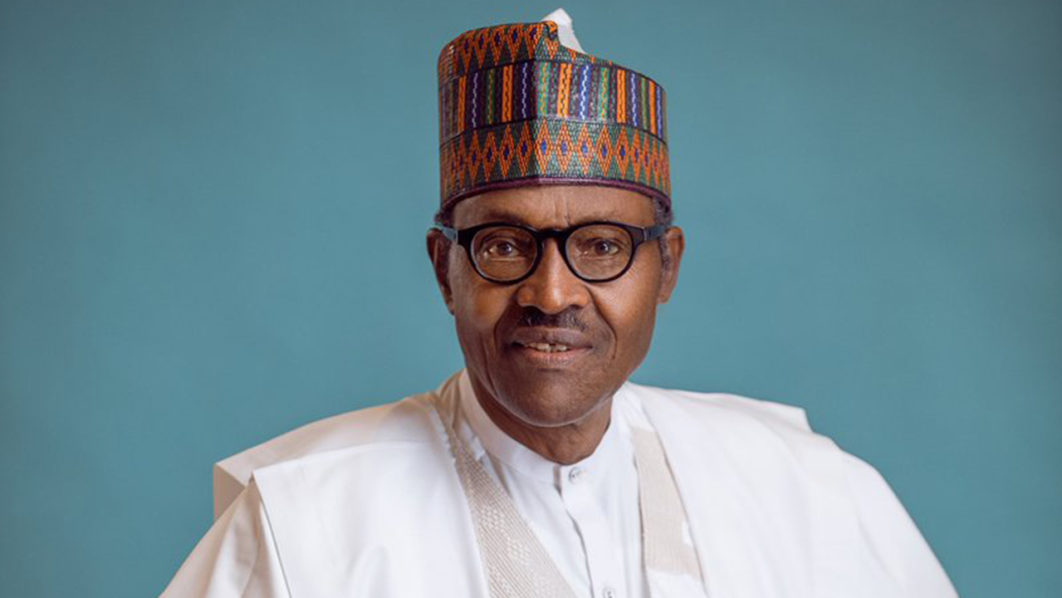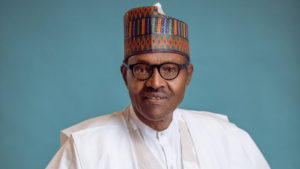President Muhammadu Buhari has honoured the winner of the June 12 1993 presidential election, the late Chief MKO Abiola, by renaming the Abuja National Stadium after him.
The President said this in a speech he read at the first National Democracy Day celebration in Abuja, stating that he approved June 12 as the nation’s Democracy Day as part of the healing and reconciliation efforts for the annulment of the presidential election.
He also said with purposeful leadership, the Federal Government could move 10 million Nigerians out of poverty in 10 years.
But the opposition Peoples Democratic Party and its presidential candidate in the 2019 election, Atiku Abubakar, said it was sad that the country was celebrating Democracy Day under Buhari, whose policies they claimed negated the June 12 spirit and ideals of the late Abiola.
They said the Buhari administration had desecrated all the nation’s democratic values and despoiled the electoral processes just to have itself in office
But in Abuja on Wednesday, Buhari honoured Abiola at the event witnessed by some of the children of the late politician, including Kola and Hafsat.
Also at the event were Vice President Yemi Osinbajo, service chiefs, President of Rwanda, Gambia, DR Congo, Gabon, Guinea Bissau, Namibia and Senegal. Among other dignitaries that also witnessed the event were representatives of the governments of Venezuela, Zimbabwe, Iran, Benin Republic, Ireland, Egypt, India and Niger.
The Ooni of Ife, Oba Enitan Ogunwusi and Oluwo of Iwo, Oba Abdulrasheed Akanbi were some of the invited monarchs for the ceremony.
Apart from honouring Abiola, the President also addressed diverse national issues and unfolded his government’s agenda on insecurity, economy and social security initiatives in the next four years.
Buhari said, “As we all know, correcting injustice is a pre-requisite for peace and unity. As part of the process of healing and reconciliation, I approved the recognition of June 12 as Democracy Day and conferred on the late Chief MKO Abiola and Babagana Kingibe national honours, as I did with the late Chief Gani Fawehinmi.
“The purpose was to partially atone for the previous damage done in annulling the Presidential election of that year. Today, I propose the renaming of the Abuja National Stadium. Henceforth it will be called Moshood Abiola National Stadium.”
Buhari noted that terrorism and insecurity had become worldwide phenomena, noting that even the best policed countries were experiencing increasing incidents of unrest.
He however said the security challenges facing the country were being met with superior strategy, firepower and resolve.
According to him, most of the instances of inter-communal and inter-religious strife and violence were sponsored or incited by ethnic, political or religious leaders, who he claimed, hoped to benefit by exploiting divisions and fault lines, thereby weakening the country.
The President said, “When I took the oath of office on May 29, 2015, insecurity reigned. Apart from occupying 18 local governments in the North-East, Boko Haram could at will attack any city including the Federal Capital Territory, could threaten any institution including bombing the United Nations building and the Police headquarters in Abuja.
“Admittedly, some of the challenges still remain in kidnappings and banditry in some rural areas. The great difference between 2015 and today is that we are meeting these challenges with much greater support to the security forces in terms of money, equipment and improved local intelligence. We are meeting these challenges with superior strategy, firepower and resolve.”
Buhari said as the chairman of ECOWAS, he would host a regional security summit of heads of states in the Sahel to develop a joint strategy to address security challenges in the region.
The President added that Nigeria had all ingredients to become a world leader.
“We have water, arable land, forests, oil and gas and vast quantities of solid minerals. We are blessed with an equable climate. However, the bulk of our real wealth lies in agriculture, livestock, forestry and mining. We possess all the ingredients of a major economic power on the world stage.
“What we require is the will to get our acts together. And our strength is in our people – our youth, our culture, our resilience, our ability to succeed despite the odds,” he added.
On the fight against corruption, Buhari said a lot of progress had been made, stressing however that corruption had found a way of fighting back.
He said, “At the heart of inequality and insecurity, is pervasive corruption. When we took office we realised that if you fight corruption, corruption will fight back – and we have seen this at all levels. For Nigeria to progress, a collective resolution to address corruption and foster broad-based prosperity is required to create a country that is not only for a few privileged, but for all Nigerians.”
He said the Manufacturing Purchasing Managers Index, which he claimed was the gauge of manufacturing activity in the country, had also risen for 26 consecutive months since March 2017.
This, he said, indicated continuous growth and expansion in the manufacturing sector.
Buhari however bemoaned the poor condition of roads leading to the nation’s seaports, which he said, had affected productivity.
He said, “It still takes too long for goods to clear at our seaports and the roads leading to them are congested. It still takes too long for routine and regulatory approvals to be secured. These issues affect our productivity and we are committed to addressing them permanently.”
According to the President, the new mandate that Nigerians gave him through the last election had revived the will to rebuild and reposition Nigeria through collaboration with states, council areas, legislators and diplomatic corps.
He also noted that Nigeria would improve on initiatives to reduce reliance on imported products and grow local production.
Buhari said, “For small-scale enterprises in towns and cities, we shall expand facilities currently available so that we continue to encourage and support domestic production of basic goods and reduce our reliance on imported goods.
“For the next four years, we will remain committed to improving the lives of people by consolidating efforts to address these key issues as well as emerging challenges of climate change, resettling displaced communities and dealing decisively with the new flashes of insecurity across the country, and the impacts on food scarcity and regional stability.”
Buhari said over the next four years, his government would assemble a strong team to implement its transformative plans in education, health, power, road construction and other sectors.
He said, “We will see significant focus, resource and where necessary reform, in tertiary and technical education to reposition Nigeria’s workforce for the modern technological age. We will accelerate investments in primary, secondary and tertiary healthcare programmes.”
Also, Buhari said the APC-led Federal Government could move 100 million Nigerians out of poverty within 10 years.
“In the face of these challenges, our government elected by the people in 2015 and re-elected in March has been mapping out policies, measures and laws to maintain our unity and at the same time lift the bulk of our people out of poverty and onto the road to prosperity.
“This task is by no means unattainable. China has done it. India has done it. Indonesia has done it. Nigeria can do it. These are all countries characterised by huge burdens of population.
“China and Indonesia succeeded under authoritarian regimes. India succeeded in a democratic setting. We can do it.
“With leadership and a sense of purpose, we can lift 100 million Nigerians out of poverty in 10 years.”
June 12: Buhari renames stadium after MKO






